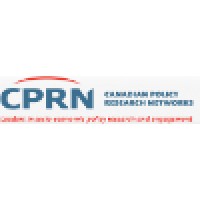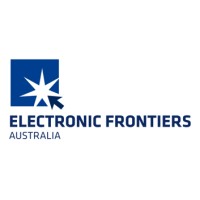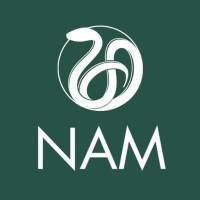Company Details
canadian-policy-research-networks
7
1,543
921
cprn.org
0
CAN_2217993
In-progress

Canadian Policy Research Networks Company CyberSecurity Posture
cprn.orgCanadian Policy Research Networks: Timely research. Thoughtful analysis. Meaningful dialogue. Founded in 1994, Canadian Policy Research Networks (CPRN) advises Canada's leaders on the issues of our times and the policy options to move Canada forward. Our mission is to create knowledge and lead public dialogue and discussion on social and economic issues important to the well-being of all Canadians. The relevance of our work is reflected in our ranking as Canada's most influential social policy think tank. Through more than 700 publications, CPRN's work touches on many of the major socio-economic challenges facing Canadian society. We analyze important public policy issues in health care, supports to families, learning opportunities, job quality, and sustainable cities and communities. Our efforts to engage more Canadians on public policy have led to dialogues on issues that are fundamental to our democracy, including civic engagement and the low voter participation by young people. Perhaps most important, federal, provincial and local governments rely on our research for ideas on how to solve pressing policy problems, or as the basis for discussions on longer-term issues. What makes CPRN different than other socio-economic think tanks is a commitment to engaging people from all walks of life and all parts of the country in the public policy process. This requires ongoing conversations with Canadians about the issues that matter most to them. It makes CPRN's recommendations particularly relevant and applicable to the needs of average Canadians. All CPRN research is available free at www.cprn.org. In 2007, there were more than 2.5 million visits to www.cprn.org by decision-makers, policy researchers, students and Canadians from all walks of life.
Company Details
canadian-policy-research-networks
7
1,543
921
cprn.org
0
CAN_2217993
In-progress
Between 700 and 749

 CPRN Global Score (TPRM)
CPRN Global Score (TPRM)XXXX



No incidents recorded for Canadian Policy Research Networks in 2025.
No incidents recorded for Canadian Policy Research Networks in 2025.
No incidents recorded for Canadian Policy Research Networks in 2025.
CPRN cyber incidents detection timeline including parent company and subsidiaries

Canadian Policy Research Networks: Timely research. Thoughtful analysis. Meaningful dialogue. Founded in 1994, Canadian Policy Research Networks (CPRN) advises Canada's leaders on the issues of our times and the policy options to move Canada forward. Our mission is to create knowledge and lead public dialogue and discussion on social and economic issues important to the well-being of all Canadians. The relevance of our work is reflected in our ranking as Canada's most influential social policy think tank. Through more than 700 publications, CPRN's work touches on many of the major socio-economic challenges facing Canadian society. We analyze important public policy issues in health care, supports to families, learning opportunities, job quality, and sustainable cities and communities. Our efforts to engage more Canadians on public policy have led to dialogues on issues that are fundamental to our democracy, including civic engagement and the low voter participation by young people. Perhaps most important, federal, provincial and local governments rely on our research for ideas on how to solve pressing policy problems, or as the basis for discussions on longer-term issues. What makes CPRN different than other socio-economic think tanks is a commitment to engaging people from all walks of life and all parts of the country in the public policy process. This requires ongoing conversations with Canadians about the issues that matter most to them. It makes CPRN's recommendations particularly relevant and applicable to the needs of average Canadians. All CPRN research is available free at www.cprn.org. In 2007, there were more than 2.5 million visits to www.cprn.org by decision-makers, policy researchers, students and Canadians from all walks of life.


The California Association for Nurse Practitioners is the unifying voice and networking forum for all nurse practitioners statewide, providing consistency and expert guidance for the profession, thereby decreasing barriers and elevating the practice of the nurse practitioner. CANP was founded as t
Spallian, European leader of geodata management, provides its clients with innovative solutions which enable them to make the most of the geographical dimension of their data. The company holds a €8.5M capital. Through the combination of consulting services and software solutions, Spallian helps it

Electronic Frontiers Australia Inc. (EFA) is a non-profit national organisation representing Internet users concerned with on-line freedoms and rights. EFA was established in January 1994 and incorporated under the Associations Incorporation Act (S.A.) in May 1994. EFA is independent of governmen

The Colorado Water Congress was established in 1958 to provide leadership on key water resource issues and serve as the principal voice of Colorado’s water community. Our belief is that the state of Colorado’s water impacts the state’s overall well-being. We are dedicated to successful promotio

The Centre for Studies in Science Policy (CSSP) as an interdisciplinary teaching and research programme is the only one of its kind in the Indian university system. Designed as a combined teaching and research effort, the CSSP aims at exploring various dimensions of the science-technology-society in

Founded in 1970 as the Institute of Medicine (IOM), the National Academy of Medicine (NAM) is one of three Academies that make up the National Academies of Sciences, Engineering, and Medicine (the National Academies) in the United States. Operating under the 1863 Congressional charter of the Nationa
.png)
PRNewswire/ -- The Canadian Cybersecurity Network (CCN), Canada's largest cybersecurity community, today released its Pulse Check – National...
Data breaches affecting millions of users are far too common. Here are some of the biggest, baddest breaches in recent memory.
In the current national and geopolitical context, compounding factors underscore a growing concern for Canada's cybersecurity.
FT analysis finds network of social media accounts attacking Liberal leader Mark Carney.
Canada's federal government will need to consolidate economic power and devise an economic statecraft strategy that will leverage Canada's economic tools to...
Queen's is home to 23 research centres and institutes that support interdisciplinary networks. Through international collaboration, research,...
Threat actors sponsored by China “compromised” government networks over the past five years and collected valuable information,...
Cybersecurity careers involve protecting systems and networks from threats. Learn about different positions and which is the best fit for...
The trio confirmed plans to collaborate on AI and cybersecurity technology development.

Explore insights on cybersecurity incidents, risk posture, and Rankiteo's assessments.
The official website of Canadian Policy Research Networks is http://www.cprn.org.
According to Rankiteo, Canadian Policy Research Networks’s AI-generated cybersecurity score is 742, reflecting their Moderate security posture.
According to Rankiteo, Canadian Policy Research Networks currently holds 0 security badges, indicating that no recognized compliance certifications are currently verified for the organization.
According to Rankiteo, Canadian Policy Research Networks is not certified under SOC 2 Type 1.
According to Rankiteo, Canadian Policy Research Networks does not hold a SOC 2 Type 2 certification.
According to Rankiteo, Canadian Policy Research Networks is not listed as GDPR compliant.
According to Rankiteo, Canadian Policy Research Networks does not currently maintain PCI DSS compliance.
According to Rankiteo, Canadian Policy Research Networks is not compliant with HIPAA regulations.
According to Rankiteo,Canadian Policy Research Networks is not certified under ISO 27001, indicating the absence of a formally recognized information security management framework.
Canadian Policy Research Networks operates primarily in the Public Policy Offices industry.
Canadian Policy Research Networks employs approximately 7 people worldwide.
Canadian Policy Research Networks presently has no subsidiaries across any sectors.
Canadian Policy Research Networks’s official LinkedIn profile has approximately 1,543 followers.
Canadian Policy Research Networks is classified under the NAICS code 921, which corresponds to Executive, Legislative, and Other General Government Support.
No, Canadian Policy Research Networks does not have a profile on Crunchbase.
Yes, Canadian Policy Research Networks maintains an official LinkedIn profile, which is actively utilized for branding and talent engagement, which can be accessed here: https://www.linkedin.com/company/canadian-policy-research-networks.
As of November 27, 2025, Rankiteo reports that Canadian Policy Research Networks has not experienced any cybersecurity incidents.
Canadian Policy Research Networks has an estimated 1,024 peer or competitor companies worldwide.
Total Incidents: According to Rankiteo, Canadian Policy Research Networks has faced 0 incidents in the past.
Incident Types: The types of cybersecurity incidents that have occurred include .
.png)
Angular is a development platform for building mobile and desktop web applications using TypeScript/JavaScript and other languages. Prior to versions 19.2.16, 20.3.14, and 21.0.1, there is a XSRF token leakage via protocol-relative URLs in angular HTTP clients. The vulnerability is a Credential Leak by App Logic that leads to the unauthorized disclosure of the Cross-Site Request Forgery (XSRF) token to an attacker-controlled domain. Angular's HttpClient has a built-in XSRF protection mechanism that works by checking if a request URL starts with a protocol (http:// or https://) to determine if it is cross-origin. If the URL starts with protocol-relative URL (//), it is incorrectly treated as a same-origin request, and the XSRF token is automatically added to the X-XSRF-TOKEN header. This issue has been patched in versions 19.2.16, 20.3.14, and 21.0.1. A workaround for this issue involves avoiding using protocol-relative URLs (URLs starting with //) in HttpClient requests. All backend communication URLs should be hardcoded as relative paths (starting with a single /) or fully qualified, trusted absolute URLs.
Forge (also called `node-forge`) is a native implementation of Transport Layer Security in JavaScript. An Uncontrolled Recursion vulnerability in node-forge versions 1.3.1 and below enables remote, unauthenticated attackers to craft deep ASN.1 structures that trigger unbounded recursive parsing. This leads to a Denial-of-Service (DoS) via stack exhaustion when parsing untrusted DER inputs. This issue has been patched in version 1.3.2.
Forge (also called `node-forge`) is a native implementation of Transport Layer Security in JavaScript. An Integer Overflow vulnerability in node-forge versions 1.3.1 and below enables remote, unauthenticated attackers to craft ASN.1 structures containing OIDs with oversized arcs. These arcs may be decoded as smaller, trusted OIDs due to 32-bit bitwise truncation, enabling the bypass of downstream OID-based security decisions. This issue has been patched in version 1.3.2.
Suricata is a network IDS, IPS and NSM engine developed by the OISF (Open Information Security Foundation) and the Suricata community. Prior to versions 7.0.13 and 8.0.2, working with large buffers in Lua scripts can lead to a stack overflow. Users of Lua rules and output scripts may be affected when working with large buffers. This includes a rule passing a large buffer to a Lua script. This issue has been patched in versions 7.0.13 and 8.0.2. A workaround for this issue involves disabling Lua rules and output scripts, or making sure limits, such as stream.depth.reassembly and HTTP response body limits (response-body-limit), are set to less than half the stack size.
Suricata is a network IDS, IPS and NSM engine developed by the OISF (Open Information Security Foundation) and the Suricata community. In versions from 8.0.0 to before 8.0.2, a NULL dereference can occur when the entropy keyword is used in conjunction with base64_data. This issue has been patched in version 8.0.2. A workaround involves disabling rules that use entropy in conjunction with base64_data.

Get company history
















Every week, Rankiteo analyzes billions of signals to give organizations a sharper, faster view of emerging risks. With deeper, more actionable intelligence at their fingertips, security teams can outpace threat actors, respond instantly to Zero-Day attacks, and dramatically shrink their risk exposure window.
Identify exposed access points, detect misconfigured SSL certificates, and uncover vulnerabilities across the network infrastructure.
Gain visibility into the software components used within an organization to detect vulnerabilities, manage risk, and ensure supply chain security.
Monitor and manage all IT assets and their configurations to ensure accurate, real-time visibility across the company's technology environment.
Leverage real-time insights on active threats, malware campaigns, and emerging vulnerabilities to proactively defend against evolving cyberattacks.




